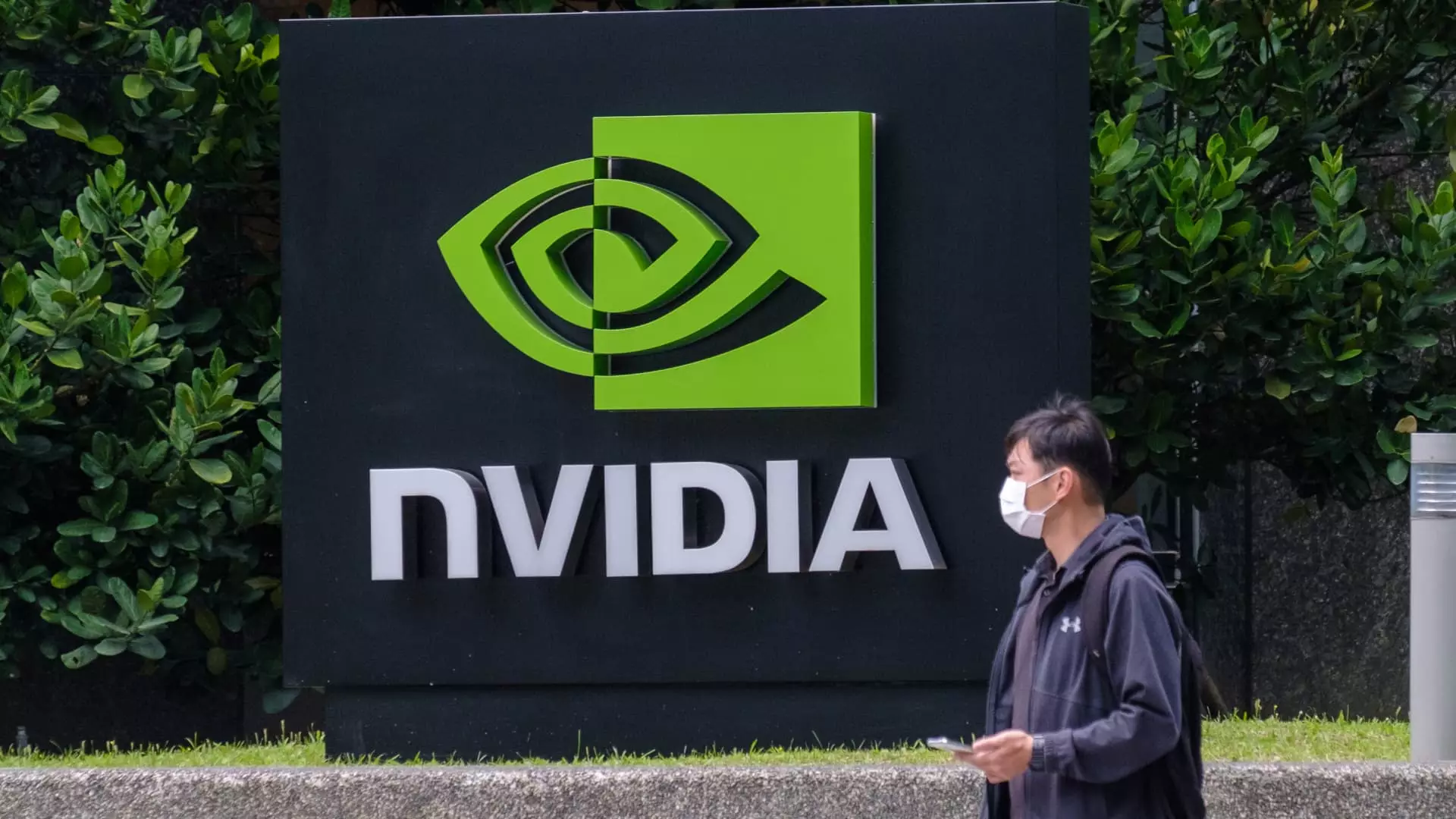The semiconductor industry is currently experiencing a significant renaissance, primarily driven by the surge of artificial intelligence (AI) technology. Nvidia, a key player in this domain, has recently reached an all-time high in its stock price, closing at an impressive $138.07. This remarkable achievement has not only raised Nvidia’s market value to a staggering $3.4 trillion but has also positioned it as the second most valuable company on Wall Street, right behind tech giant Apple. As Wall Street enters the earnings season, this newfound momentum has created a ripple effect across the Asian chip sector.
The bullish sentiment triggered by Nvidia’s success has had a profound influence on Asian chip stocks, particularly those closely linked to Nvidia’s supply chain. For instance, shares of South Korea’s SK Hynix, renowned for its high-bandwidth memory chips utilized in AI applications, surged by 2.5%. Meanwhile, its compatriot Samsung Electronics, which is poised to manufacture high-bandwidth memory chips for Nvidia products, enjoyed a 0.5% rise in its stock. This trend is reflective of the infectious optimism among investors who are increasingly betting on the potential of semiconductor stocks as essential components in the booming AI landscape.
Other notable beneficiaries of Nvidia’s ascendancy include Taiwan Semiconductor Manufacturing Company, which saw its shares climb approximately 2%, and Hon Hai Precision Industry, commonly known as Foxconn, with an increase of about 2.5%. In Japan, the semiconductor manufacturing climate is no less enthusiastic. Companies like Tokyo Electron, a provider of manufacturing equipment, experienced shares rallying by 5%. Similarly, Advantest, another equipment supplier, noted a gain of 3.6%, while Renesas Electronics improved by over 4%. These upward trends signify a decisive market response, highlighting the interconnected nature of the semiconductor supply chain.
The relationship between Nvidia and giant tech firms such as Microsoft, Google, Amazon, and Meta is a critical element of this narrative. These companies have embarked on an extensive purchasing spree, acquiring Nvidia’s graphics processing units (GPUs) in large volumes as they look to advance their AI capabilities. With quarterly results due by the end of October, these tech titans are expected to reveal how their substantial investments in Nvidia’s GPUs are shaping their business models and growth trajectories.
Interestingly, the recent surge in Nvidia’s stock comes after a turbulent period in late August when its shares dropped despite exceeding quarterly earnings expectations. The drop was attributed to a dip in gross margins, raising questions about the sustainability of its growth. However, the remarkable 180% increase in Nvidia’s shares this year underscores a resilient comeback, affirming investor confidence in the company’s long-term potential within the booming AI sector.
Nvidia’s record-breaking growth has not only elevated its own fortunes but has also catalyzed a broader uplift in Asian chip stocks, reflecting a robust optimism about the technology’s future. As the earnings season unfolds, all eyes will be on how this evolving landscape impacts both Nvidia and its extensive network of partners across Asia.


Leave a Reply